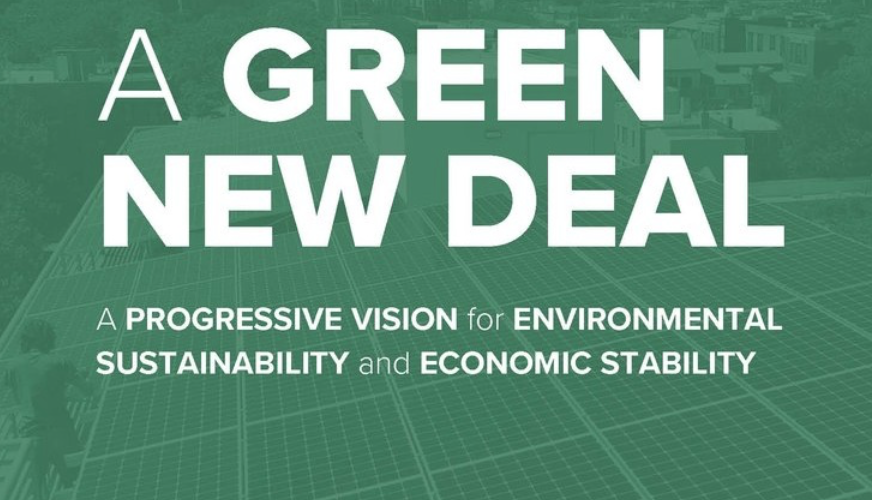Should the US implement a “Green New Deal”?
The Green New Deal intends to combat climate change and improve global warming, but many argue that implementing the plan isn’t feasible as it will cost the nation over 1 trillion dollars.
James Hansen, an adjunct climate science professor at Columbia University said it perfectly: “Global warming isn’t a prediction. It is happening.” Global warming, defined by Oxford Languages as “the gradual increase in global temperature” will soon be irreversible. The effects of global warming are numerous and will cause our planet to be unstable, unless we take immediate action.
Congresswoman Alexandria Ocasio-Cortez and Senator Ed Markey are the creators of a controversial resolution to address global warming known as the “Green New Deal.” The deal proposes legislation meant to address global warming and inequality.
However, some critics and politicians argue that the U.S. should not pass this resolution. They claim the deal would cost the nation over 1 trillion dollars and that it may even encourage tax evasion, along with other risks.
According to The New York Times, President Donald Trump claimed the deal would cost 100 trillion dollars. The New York Times pointed out how “climate change could be equally costly to the American economy,” per Lisa Friedman.
There are other potential negative effects aside from the cost, but money seems to be the biggest problem some have with the resolution. Critics are in opposition to the carbon taxes the deal suggests because they believe those taxes will cause pollution tax evasion. Others argue that businesses might move to other countries where there are not carbon taxes, weakening the U.S. economy.
Still, climate change stands as a dangerous threat to the world. The World Wildlife Fund (WWF) wrote that “as climate change worsens, dangerous weather events [will become] more frequent or severe.”
Climate change has stood as a paramount issue over the past few years. Currently, individual states are forced to take matters into their own hands due to national inaction. For example, “in Massachusetts, Governor Charlie Baker…. [authorized] over $2.4 billion in investments for safeguarding residents” and infrastructure, according to the Massachusetts State Government website. The “Green New Deal” would create a normative framework for the nation as a whole to tackle global warming and climate change. It would unite states in the battle against global warming.
The deal would also guarantee people “jobs, leave, vacation, and retirement,” according to CNN writer Zachary Wolf. Wolf also wrote that the deal would provide higher education, strengthen unions, protect worker’s rights, and make sure that all United States citizens have access to “health care, housing, security, clean air and water, healthy food and nature.”
Co-Director of the Precourt Institute for Energy, Sally Benson, said that “the biggest potential problem [with the deal] would be broadly deploying technologies that aren’t yet sufficiently developed.” This is true – our nation still needs to develop “critical components of a decarbonized system,” writes Benson.
While the Green New Deal tackles some of our nation’s greatest problems, it has more than enough disadvantages. Overall, the deal seems too expensive and radical for some critics. Others seem to be asking whether or not climate change will end up costing the nation more than the deal. The Natural Resources Defense Council writes that just four natural disasters caused by climate change, could cost “$1.9 trillion by 2100”. Clearly, climate change is not an inconsequential issue of passing importance.
Yes, global warming is an issue that needs to be dealt with immediately. However, the “Green New Deal” is not the correct solution.
The “Green New Deal” has many flaws, some of which are listed above. Former Vice President and President-elect Joe Biden has proposed his own climate change plan. Joe Biden’s plan is less expensive and is more realistic. It outlines goals to tackle this serious issue.
Global warming still stands as a serious issue. If humanity does not solve this problem, the effects will be irreversible and possibly cause its downfall. Although the “Green New Deal” proposes a plan to solve this issue, there are other plans that are more reasonable.


